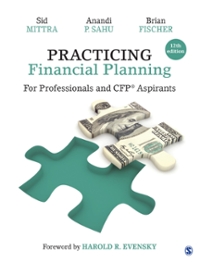Question
Question 1: Auditors perform audit attestation to enhance the credibility of the financial report. However, it is quite impossible for the auditors to provide an
Question 1: Auditors perform audit attestation to enhance the credibility of the financial report. However, it is quite impossible for the auditors to provide an absolute assurance regarding the subject matter on which they express their opinion. Required:
a. Why is it impossible for an auditor to provide absolute assurance regarding subject matter on which they express their opinion?
b. Explain what type of assurance an auditor should provide in a financial report audit. (1
Question 2: You are an audit senior in an accounting firm and you asked the audit partner about the 'audit expectation gap'. The audit partner provided his opinion on the issue as follows: There is a so called 'audit expectation gap', and it is associated with unreasonable expectations of users. They want all fraud found, and a guarantee that the company will continue forever! This is quite unreasonable and not what the audit is designed to do! Perhaps we could do more on these issues, but it would be more work, cost more, and I doubt whether the companies would be prepared to pay anyway.
Required: Discuss the views of the audit partner.
Question 3: Independence has always been a fundamental aspect of the accountancy profession. A commentary in 2003 suggested the following: ... the public interest will be best served by reprioritizing professional and ethical objectives to establish reliability in fact and appearance as the cornerstone of the profession, rather than relationship-based independence in fact and appearance. Required: Based on the series of accounting crises and corporate collapses in the early 2000s, discuss the importance of maintaining independence (and reliability) by an auditor.
What do you think of the above comment?
Question 4: Polo Babywear Ltd was formed on 30 August 2013 and its first financial year ended on 30 June 2015. The audit firm of Ross, Young & Partners has tendered for and won the audit for the first financial year. After signing the audit engagement letter, Mr. Ross is approached and asked to act as the company secretary for a period of 6 months because the company has had difficulty in obtaining staff. The role would be mainly to sign documents and to satisfy ASIC that the company had a complete set of officers. Mr. Ross would have no financial interest in the company through share ownership or otherwise, would receive no salary, would not keep the books, and would not give any advice that is different from what he would normally give in his duties as a public accountant. Mr. Ross decides to accept the offer, conditional on the appointment being definitely completed before the rendering of the audit opinion on the financial statements.
Required:
Discuss Mr. Ross's acceptance of the dual roles of company secretary and auditor
Question 5: How did the key principles of 'due care' develop through the Kingston Cotton Mill Co. case, the London and General Bank case and the Pacific Acceptance case?
Question 6: What is the difference between
(a) an unmodified auditor's report and
(b) a modified auditor's report?
Question 7: What is the purpose of touring operating facilities and offices?
Step by Step Solution
There are 3 Steps involved in it
Step: 1

Get Instant Access to Expert-Tailored Solutions
See step-by-step solutions with expert insights and AI powered tools for academic success
Step: 2

Step: 3

Ace Your Homework with AI
Get the answers you need in no time with our AI-driven, step-by-step assistance
Get Started


